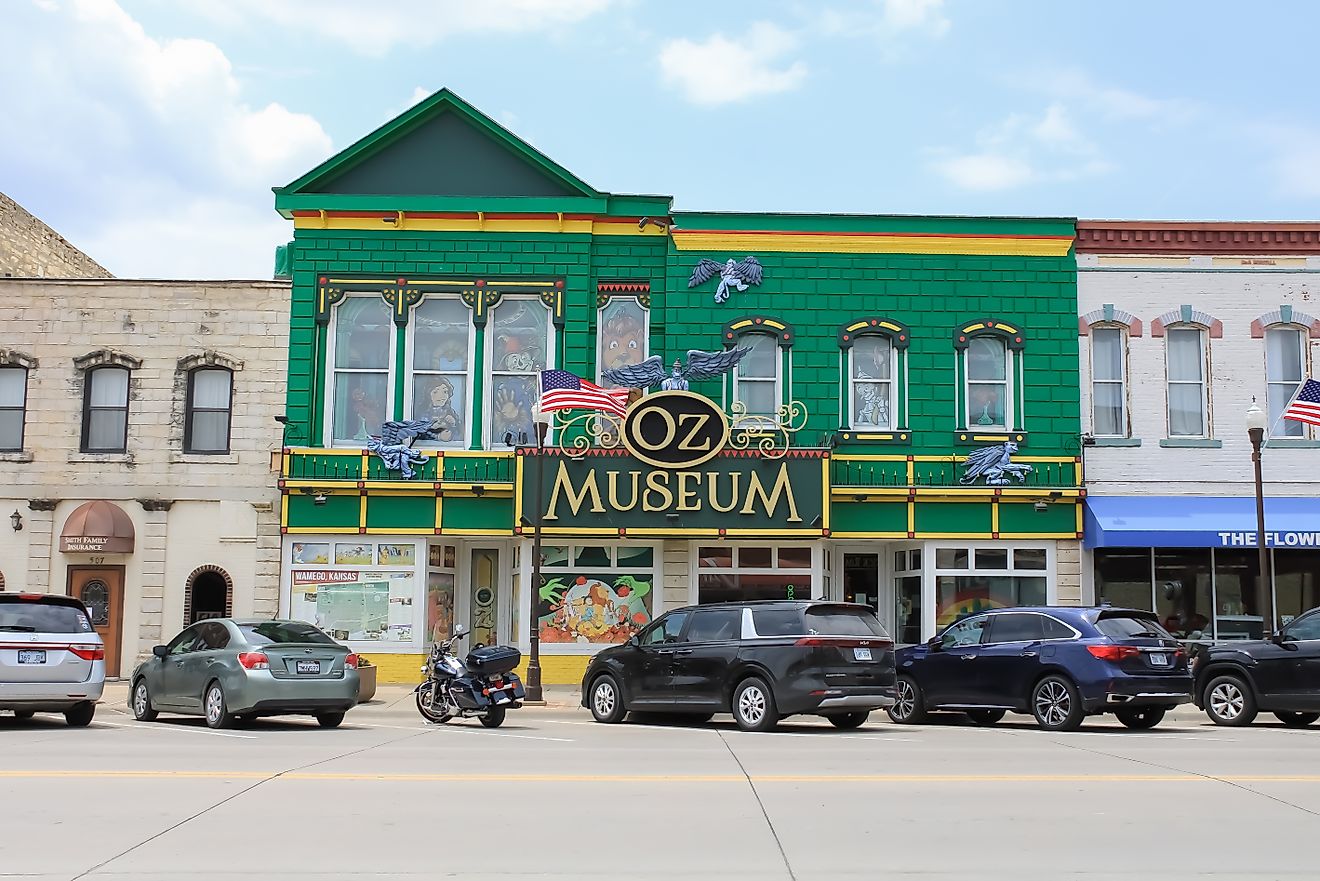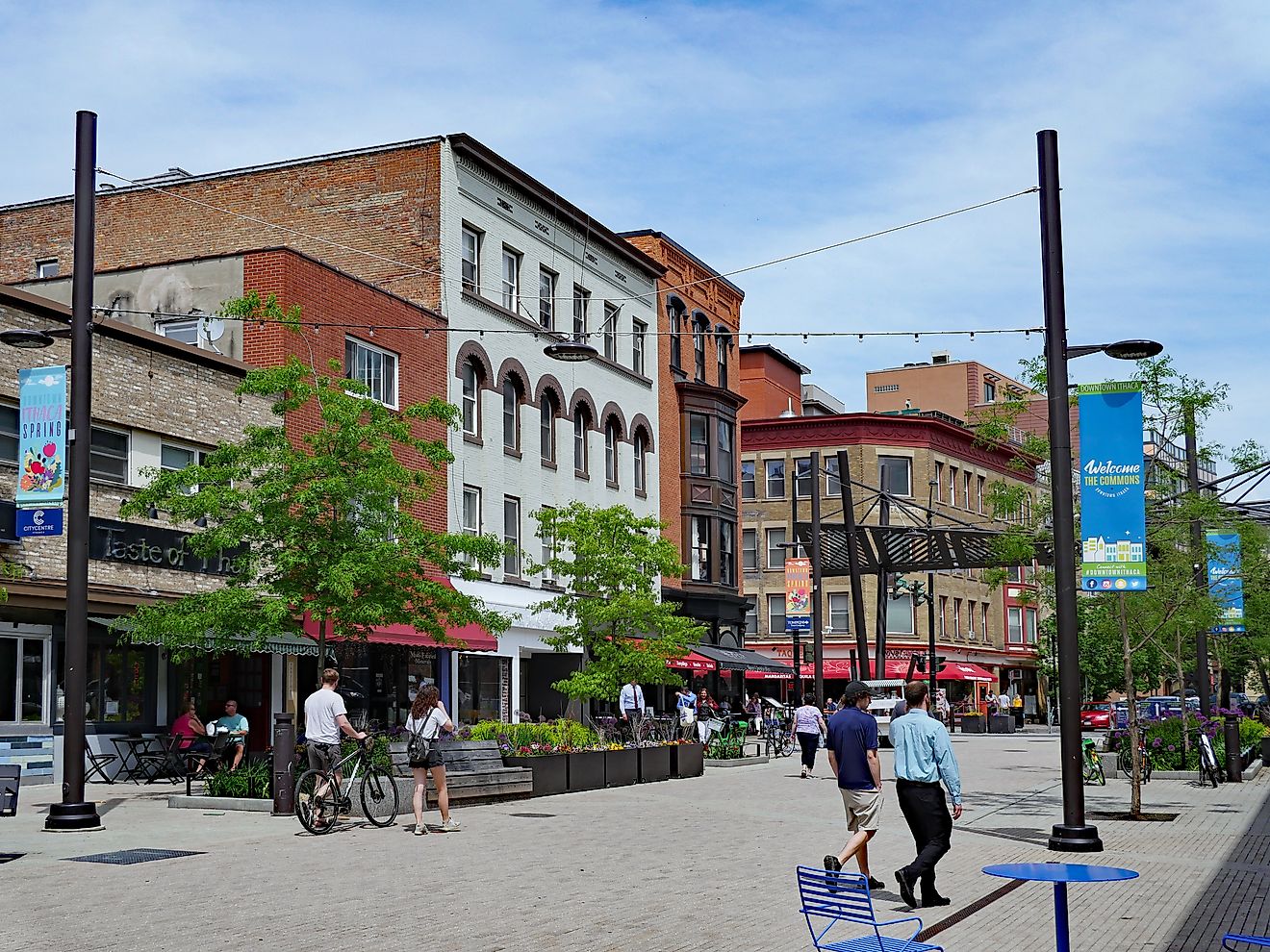
7 Must-See Historic Towns in Kansas
The history of Kansas dates back several centuries. Kansas was inhabited by Native Americans up until the 16th century when Spanish conquistadores explored the area. In the 17th century, the region was claimed by France, and in the 19th century, the area became part of the United States after the Louisiana Purchase of 1803. Kansas played a huge role in the start of the American Civil War as it was the site of several conflicts over the issue of slavery. Today, the state is filled with so many towns that shed more light on its centuries-long history. A visit to these towns is like sitting for a history lesson that cannot be learned in school. From Abilene to Lecompton, here are some of the must-see historic towns in Kansas.
Council Grove
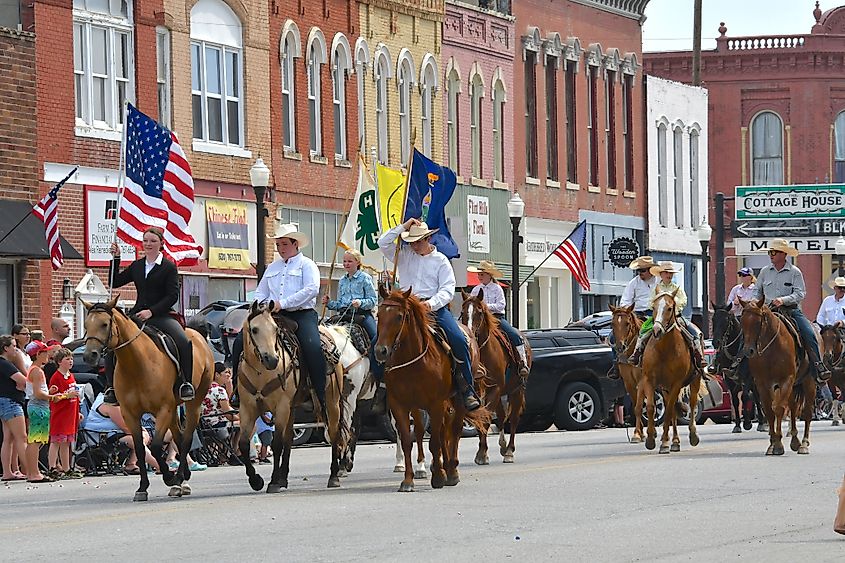
Council Grove was established following an agreement between the Osage Nation and settlers for wagon trains to move west via the area around the Santa Fe Trail. Today, visitors can immerse themselves in the town's history by visiting the Allegawaho Heritage Memorial Park, which is home to the Kanza Monument - a 35-foot limestone tower that pays tribute to the Kanza people who lived here. The park also has a heritage trail from which visitors can explore several huts.
Another historic attraction to check out in Council Grove is Hays House which was built in 1857 as a restaurant and trading post on the Santa Fe trail. It is now regarded as the oldest restaurant west of the Mississippi, where visitors are invited to come enjoy quality food. For those yearning to visit and experience something fun and outdoorsy, head over to the Neosho Riverwalk Amphitheater to enjoy some entertainment and mingle with locals beside the Neosho River. This amphitheater also features a large playground and picnic tables, and several concerts are held here throughout the year.
Dodge City
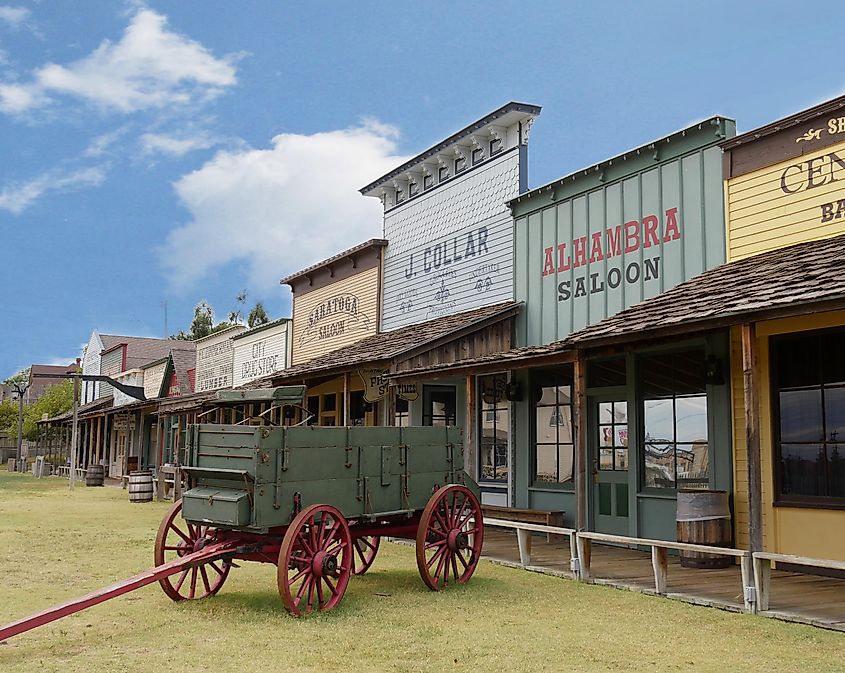
Dodge City dates back to 1871 when a rancher, Henry Sitler, erected a sod home near Fort Dodge to supervise his cattle business around the Santa Fe Trail. Soon, his home became a stopover point for travelers, and within one year, the city was founded. With the arrival of the Santa Fe Railroad in 1872, the city became even more vibrant as cattle from Texas began to pour in. Dodge City became a thriving cattle hub filled with cowboys, gamblers, buffalo hunters, and everything else that makes a Wild West town. At a time, Dodge City was even considered the Wickedest Little City in America, which is just fascinating. For visitors today, Boothill Museum is the best place to explore the town's history as a wild frontier town of the old west. The museum features thousands of artifacts as well as gunfight re-enactments and other entertaining shows designed to take visitors back in time.
The town is also home to the Gunfighters Wax Museum, which features life-size statues of Old West legends such as Buffalo Bill, Wyatt Earp, and Billy the Kid, among others. This museum is located in the same building as the Kansas Teachers Hall Of Fame, which celebrates old and present outstanding teachers in the state. For something different, visit the Liberty Garden, which stands as a memorial to the tragedy of September 11.
Fort Scott
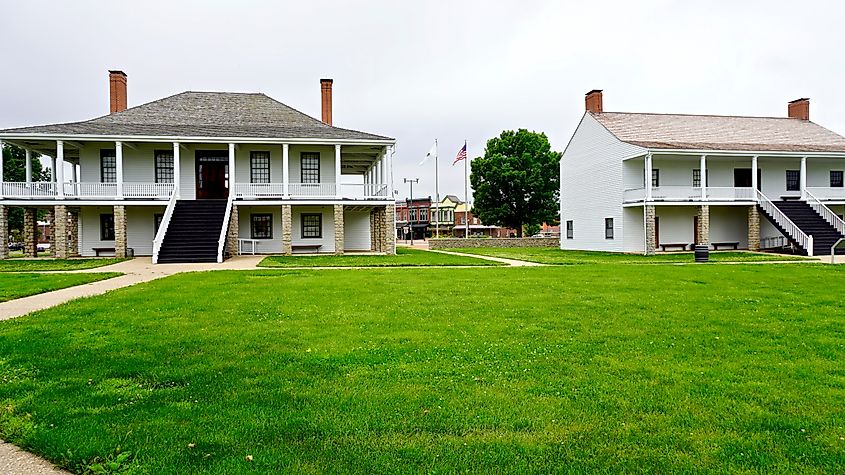
Fort Scott is a town rich in Civil War history. The town was set up by the US Army between 1842 and 1853 as a fortress for the Permanent Indian Frontier. However, the army left the fort in 1853, and its buildings were auctioned to local settlers in 1855. Most of these locals held pro-slavery sentiments, and many participated in Bleeding Kansas - a series of violent confrontations that eventually led to the Civil War. Today, the town is home to attractions like Fort Scott National Historic Site, which features restored or reconstructed structures that shed more light on the town’s rich history.
To learn more history, visitors can get on Dolly the Trolley which is a 50-minute tour of the town’s top historic attractions. This tour stops at the US National Cemetery No. 1 and several historic mansions. To take a break from the history, head over to the 155-acre Gunn Park, which features playground areas, lakes for fishing, and an 18-hole golf course.
Cottonwood Falls
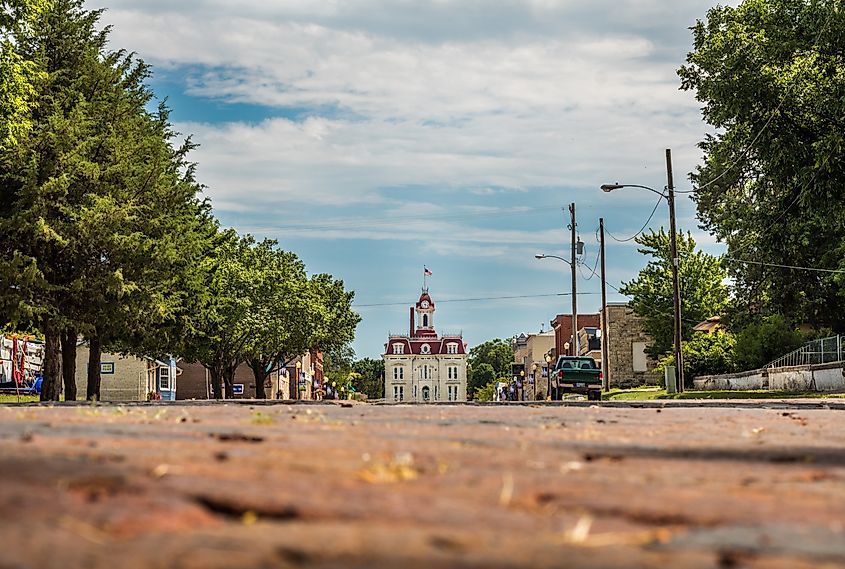
Cottonwood Falls is a beautiful town with a history dating to 1854, when it was first settled by an Indian trader named Seth Hayes. In 1858, the first post office of the town was built and in 1872, a courthouse was also established in the area. Visitors to Cottonwood Falls can tour the Chase County Historical Museum to learn more about the town and the county in general. Alternatively, explore the Roniger Memorial Museum, which houses Indian artifacts that reflect the Indian-American culture of the town. Before leaving, check out the Chase County Veterans Memorial, which was built in honor of American veterans, and then drive ten minutes west of the town to Chase State Fishing Lake and Wildlife Area to experience some time in nature.
Colby
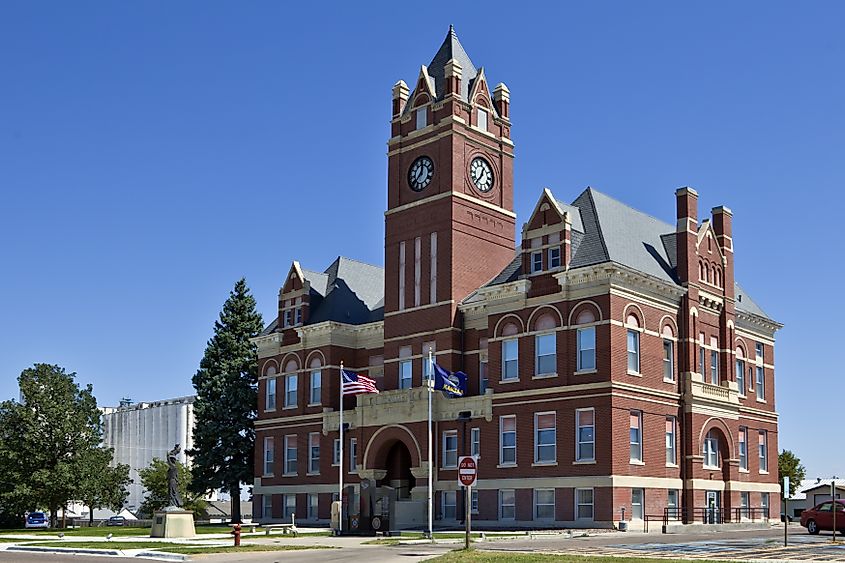
The town of Colby grew as a refuge for area homesteaders who lived in sod homes and battled harsh weather conditions alongside the challenging prairie life. J.R. Colby, a preacher and assessor, then filed for a patent to establish the town in 1881 but got the approval in 1884, while the town was incorporated in 1886. Visitors today can explore the town's history at the Prairie Museum of Arts and History, featuring the sod houses of early homesteaders and the Cooper Barn, which is the largest barn in Kansas. Next, visit the Thomas County Courthouse, built in 1906 and listed on the National Register of Historic Places. After a historic adventure, head over to Colby Aquatic Park to have some fun and relax with a lazy river, pool, and water slides.
Lecompton

Lecompton is a beautiful historic city steeped in history as it was the former capital of Kansas Territory in 1855, a year after it was founded. The city was famous for its pro-slavery sentiments which led to a series of violence that became known as Bleeding Kansas. In 1857, a convention was held at the Constitution Hall to draft the Lecompton Pro-slavery Constitution, and this led to controversies that would eventually explode into the full-blown Civil War.
Today, the Constitution Hall still stands as a historic landmark and museum that takes one back to the start of the war for freedom and equality in America. The Territory Capital Museum is another outstanding historic attraction housing everything about the city's past, including relics of the Bleeding Kansas crisis. If there’s still time, visitors can check out the Democratic Headquarters, one of the oldest houses in Kansas, and the Historic Lecompton Jail, which still has its original door and window bars.
Abilene
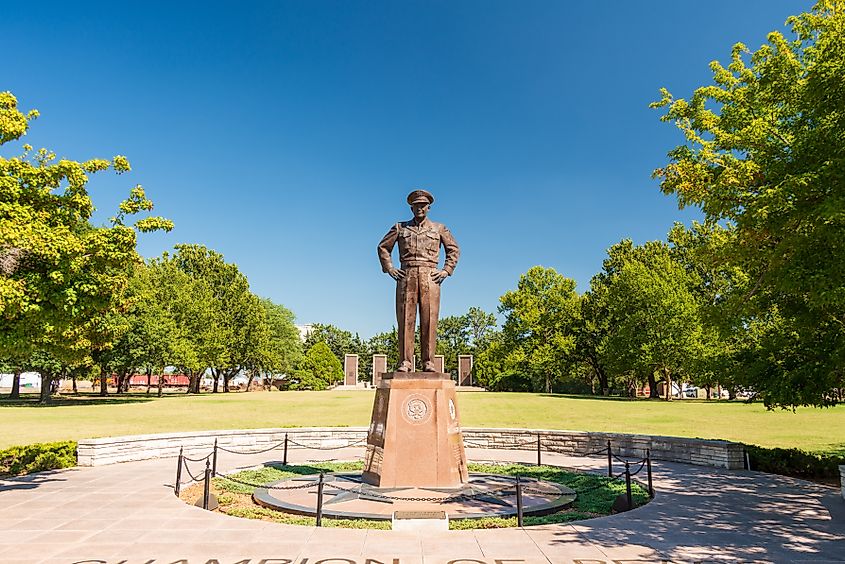
Abilene is a historic town in Dickinson County founded in 1858 primarily as a stagecoach shop. Around 1867, it became one of the first cow towns of the old west after Joseph McCoy purchased 250 acres of land and built his stockyards. Subsequently, it became a transportation hub for the shipment of thousands of cattle to Texas via the Chisholm Trail. Today, the town is a bustling tourist hub, with notable attractions such as the Dickinson County Heritage Center and Museum, which features three museums that bring the history of the town to life with artifacts and exhibits. Visitors to Abilene will love the Seelye House and Museum - a 25-room Georgian-style mansion built in 1905 and featuring the Edison company's original light fixtures and furniture. Abilene is also the hometown of President Dwight D. Eisenhower, with his gravesite, presidential library, and museum still intact for visitors to tour.
Kansas is a Midwest state lavish with a long history that encompasses the cowboy and cattle trade era to the period of slave conflicts and the American Civil War. This storied past of the state is heavy in its towns, which are home to numerous museums, memorials, historic buildings, forts, and prairie fields, among other things that will take visitors to the early days of America. Take a break from the big cities and visit these towns for an immersion into the rich history of the country today.
